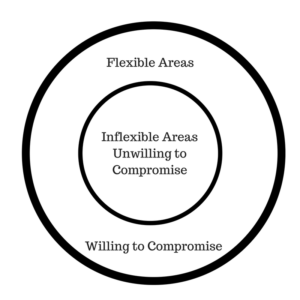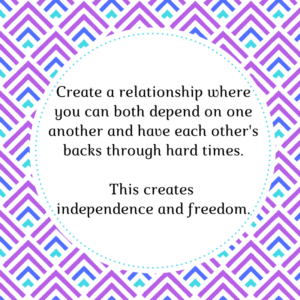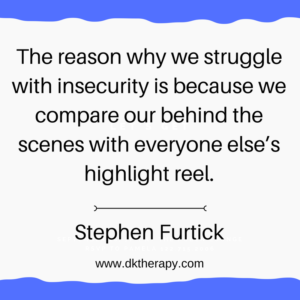This Mindset Shift Could Help Improve Your Sex Life
/in Couples Therapy, From the Therapist's ChairThis mindset shift when it comes to arousal and desire may help improve your sex life.
Dependency: Not a Bad Thing In Relationships
/in Couples Therapy, From the Therapist's Chair, Life Outside the OfficeHere’s a little secret about my own relationship. My husband regularly goes on hiking trips with people he has met on the Internet (often women!). Oh, and I don’t go on said trips with him and often have never met the people he goes with. He really enjoys hiking/backpacking and well, I don’t as much. I went on a few hiking trips with him and I just didn’t have that great of a time. This is his hobby and passion. I’ve got other hobbies that he has no interest in as well.
Guess what? I consider my relationship pretty rock solid and wonderful.
How can that be, you may ask? Some questions/remarks I have heard throughout the years… “Why in the world do you let your husband meet people let alone other women and spend all day with them in the woods?” “Aren’t you afraid of something happening?!” “What kind of husband would go on a hiking trip without his wife?” And oh so much more….
We live in a culture where we are taught not to rely on others for emotional support and yet see relationship red flags when two people do hobbies independent from one another.
The answer, to put it simply at first, is no, I am not worried because I trust him and I do not want to deprive him of something he is truly passionate about (nature, hiking/backpacking, mountains etc.). I do worry about him when he is hiking though safety-wise!
The more complicated answer has to do with what Mary Ainsworth, a developmental psychologist, called a secure base. She did an experiment studying attachment with infants and mothers called the Strange Situation Test. Basically, a child is put into a room with toys and the mother leaves the room and comes back. The child with a secure attachment style, while upset that the mother left, is able to be soothed by her, and then uses her as a secure base and is able to go out and explore the toys with confidence while glancing at her/his mother. The child knows that she needs her mother, her mother is available.
As adults, we are put into ‘strange situations’ every day, whether they are at work, with friends, or even when our husbands are in another state hiking with people we don’t know. Ok, maybe the last one is just me… Having a secure base as an adult is having someone who, in your time of need, 100% has your back and is supportive of you. It’s someone whom you can depend on and vice versa. As adults, we are capable of knowing that our partners are there for us emotionally and psychologically even if they are not close in proximity. If your partner makes you feel safe and is able to reassure you during hard times, you are free to focus your attention on other things that make your life more meaningful, such as hiking.
Early on in our relationship, there were many times where my husband stood up for me, gave me pep talks, and had my back and I for him. We created this security early on, but it wasn’t always smooth sailing (more on that in later posts). My husband is my secure base and I am his. This type of relationship may look very independent from the outside. He’s off hiking on the weekends, I’m back in Chicago. On the contrary, we are actually very dependent on one another. *gasp* He is the first person I turn to if I need advice on just about anything. He opens up to me about his work stress. We are very emotionally close. So how can we be emotionally close but physically apart for a good portion of the weekends in the summer when he is off hiking?
This is what attachment theorists call the “dependency paradox” meaning the more dependent you are on someone during hard times and they are available to meet your needs, the more independent you become. Think of the kid who stands up to the class bully because they know their friends have their back either way or the husband who applies for a job promotion out of state and rocks the interview knowing he has his wife’s full support and that they will make things work no matter what happens.
The saying “if you love someone, let them go, if they return, they were always yours” comes to mind, but I’d tweak it a little bit. I would say “if you love someone to the point that you can depend on him or her to have your back and support you and likewise you for them, let them go. Do your own thing, they’ll be back and they’ll tell you how much fun they had and how they wished you were there too.” You’ll both probably feel more satisfied with your relationship and your lives.
How I Almost Missed Out On My “Good Guy” and Tips So You Don’t Miss Yours!
/in Couples Therapy, From the Therapist's ChairI’m just going to go right out and say it, dating sucks, especially now with all the apps and the swiping and the paradox of choice. However, I don’t think it’s the modern technology, although it doesn’t help, that makes dating suck. It’s more scientific than that. You’ve heard that saying ‘dating is a number game,’ right? It certainly is!
Let’s talk about attachment styles for a minute. Neither one is good or bad (although it may seem that way). Odds are you either will recognize these characteristics in yourself or someone else. The three main attachment styles are as follows:
- Anxious
- Wants a lot of closeness in relationships
- Has a lot of insecurities about rejection
- Sensitive to small cues and fear the relationship is in jeopardy and that he/she must work to keep you interested
- Struggles expressing what is bothering him/her
- Secure
- Reliable and constant
- Naturally expresses feelings for you
- Not afraid of commitment or dependency
- Communicates relationship issues well
- Avoidant
- Sends mixed signals and doesn’t make intension clear
- Values independence a great deal
- Emphasizes boundaries in relationship
- Has difficulty talking about what’s going on between the two of you
Odds are, you have most likely dated people with an anxious or avoidant attachment style. I know I have certainly dated my share! In fact, I dated so many people with this attachment style, I almost blew my chances when someone with a secure attachment style (my husband–believe it or not) came along!
Here’s my story, hopefully you can benefit from hearing it and the lessons I’ve learned from it. Keep in mind, I would consider myself to have an anxious attachment style (at least at this time!) and my husband having a secure attachment style. I will include my inner dialogue and ways my husband calmed my “activated attachment system” as well as some
See if you can pick up the cues that his attachment style is secure.
Back in the day, I was a big fan of online dating. It was easier than meeting people in person and I liked the screening process. When my now husband messaged me on a site, I at first did not see it, but then he messaged a few days later and I quickly scanned his profile before responding. We didn’t seem to have much in common, but decided to respond to him anyway. We chatted online for an hour or so then he quickly asked for my phone number that same night.
“My phone number?! I don’t even know him, he’s moving very fast!”
“What if we talk and he gets bored because we’ve already talked for a while already?”
I gave him my phone number anyway and we talked for a few more hours that night. He said he had a great time talking with me and then asked me on a date for a few days from now.
“I don’t know about this, I usually like to talk to people more before I meet them.”
“He’s very direct, I don’t know how I feel about that.”
“I bet once he meets me he won’t want to see me again. I don’t know if I am good enough.”
We met and had a wonderful date where we talked and seemed to really hit it off. The next morning, he called and left me a voicemail saying that he had a wonderful time and he wanted to know when I was available next.
“This is unreal. I meet a nice guy and he tells me right away that he had a great time and wants to make plans with me again right away!”
“What’s his angle here, I’ve never met someone with such clear intensions.”
I messaged him saying I had a great time too and that I was available that next weekend. We called and texted throughout the week, getting to know each other further. He was available to talk during the day (work permitting) and let me complain about my crummy job at the time.
He said he knows he just met me once, but he wants to see where this goes and is planning on canceling any other dates he had lined up for the future.
“I can’t believe this. No guy has ever been this direct and able to express his feelings so clearly.”
“Do I have to do the same? I am not sure if I like him as much as he likes me…” (no, I did not have to do the same)
“He’s taking a big risk on me, I don’t know if I am worth the risk.”
A close friend warned me about “guys like him.”
Can you pick up on his secure attachment style? How about my anxious one and what I was used to dating in the past (anxious and avoidant men)? Had I listened to my friends and my rather calm but confused attachment system, I may have missed out on someone really special.
A few tips on how to not let a secure person get away:
- Ask yourself “is this person able and willing to meet my needs?”
- Do you really like a few texts throughout the day? Are they able to meet that need for you?
- Do you need to vent about your work? Do they listen to you and not shut you down?
- How do they react to you expressing your feelings (within reason) for them.
- Do they shy away from commitment or play games with their feelings?
- How do they react when you express displeasure with something they did or said?
- When you effectively communicate that you were disappointed, how open are they to your feedback.
- Do you know where you stand with this person? Is there very little “drama”?
- We’ve conditioned ourselves to be used to and welcome the drama, but people with secure attachment styles are upfront with their feelings and can at times seem boring due to the lack of drama.
Stay tuned for more attachment style insights to help you improve your dating life.
How to be Happy: Compare Yourself to Yourself
/in Acceptance and Commitment Therapy In Real Life, Couples Therapy, Individual TherapyAs a therapist and a person, I hear time and time again “I just want to be happy” or “I’m not sure why I am not happy.” Upon further discussion it almost always leads to the other person comparing themselves to others around them. Whether it is a single person comparing themselves to all of their paired-up friends or a person in a dead-end job comparing themselves to people they know that are successful. Comparisons.
I’m not sure when humans as a species first learned to compare themselves to others around them but I bet it is similar to Darwin’s “survival of the fittest.” After all, how did we determine who the fittest was or how could we be fitter than the fittest if we first did not compare ourselves to our fellow humans?
This logic might have worked for us back when we had to run from wild animals, but like many evolutionary traits (like the fight or flight response!) they don’t have nearly as much use as they did way back when.
Now, in the modern world, we use that “comparison trait” to compare ourselves to others who already excel in one area where we are weak. Like my earlier examples of single vs. in-a-relationship or in a dead-end job vs. successful. This is not a very fair comparison at all since the other people already have something that you desire. Sometimes this type of comparing can lead to people working harder to surpass others, but more often it leads to unhappiness.
So how does this all relate to happiness?
I’m not sure we can do away with the “comparison trait” all together, but we can turn the focus more inward than outward.
Instead of comparing yourself to what others choose to show you, you can compare your current self to your former self.
Make your own happiness dependent on whether you are growing as a person and completing goals you set out for yourself. Every person is unique and has unique ways they grow. This cannot be fairly compared to the growth or success of someone else. It can be as big as taking a chance and asking someone out that you’ve had a crush on or as small as cleaning your house. Both examples create a sense of personal accomplishment that involves no comparisons.
Three Ways in which to do this:
- Start a happiness journal/log and log 3 things you were grateful for that day. Do this for a month and see what happens.
- Have a bunch of hobbies you never have time for? Make a list of hobby goals (for yourself!) and set out to accomplish them. ie. learning to cook, learning a new language etc. Make sure it’s easily measurable so you can compare your progress and growth!
- Comparing yourself to others looks-wise? Make fitness goals and keep track of your progress. Fitness goals are a good choice because they are about YOU and are easily measurable.
There you have it–whether or not you choose to focus on internal or external happiness is on you.
Two Tips on How to Deal with Your Family and Partner During the Holidays
/in Couples Therapy, From the Therapist's ChairThe holiday season brings many joyful times as well as many stressors. Spending time with family is something many of us look forward to enjoying, but depending on our relationship with in-laws and parents, the holidays may not be as rewarding as we hope. Getting married or being in a long-term relationship means you inherit a new set of parents, your partner’s parents, for better or for worse.
Here are two tips that may help you keep your relationship intact when navigating the relationship you have with your in-laws:
1) Discuss holiday schedules ahead of time in a productive way
Figuring out which family you visit or visit first and when should be a decision between the two of you and usually involves a bit of compromising. This is an important step in showing both of your families that you are now separate from them and have formed your own family. John Gottman identified a method called ’the two ovals’ which works well for figuring out holiday schedules.
Here’s how to do it:
- Draw two ovals, one inside of the other like a donut or a bagel.
- In the smaller circle put the family time you are unwilling to compromise on, the things that if you gave up, you’d really regret and feel badly about. Say holiday dinner at your aunt’s house.
- In the larger oval put the family time you are more flexible with, like when you visit your grandparents the next town over.
- Discuss your ovals with your partner and ask the following questions:
- Where you do agree?
- What are both of your inflexible areas?
- How can you reach a temporary compromise for this holiday season?
- Come up with a plan that works for both of you and then tell your families as a united front.

2) Create a sense of ‘we-ness’ and solidarity with your partner, especially around the holidays.
Tense situations with in-laws and spouses often occur in marriages and sometimes you may wonder where your and your partner’s allegiance lies. You both have been part of another family for a long time; that family has its own holiday traditions and customs. Somewhat of a ’turf war’ between the spouses and in-laws may ignite, both wanting the partner’s attention during the holidays.
One of the main ways to end the war is to create a sense of ‘we-ness’ and solidarity with your partner and side with your partner over your parents. This may mean having to hold your ground and stand up for your spouse and take this or her side over your parents. This may seem harsh, but slowly your parents will adjust to reality and accept that your partner comes first. You are a partner/spouse first and a son/daughter second. Remember which team you are on.
Here’s a more mild example:
Your father says: “Jane’s mashed potatoes are good, but your mother’s are better aren’t they? I don’t like all of the onions that Jane put in them this year.”
You can say: “Actually, I really like the extra onions, it gives it a more flavorful taste.”
And another example:
Your brother says: “I don’t know why you married Jack, he’s got no personality!”
You can say: “He really opens up once you get to know him. Why don’t you ask him about his fantasy football draft this year?”
This way you are choosing your partner over your parent/relatives. It might seem like a small gesture, but it adds up, especially in the eyes of your partner!
Hopefully these two tips help you navigate the holiday season with your partner.
4 Tips To Have A Great Date
/in Couples Therapy, From the Therapist's Chair, Individual TherapyI hear these comments fairly often in my practice: “I’m not good at dating,” “I never know what to say” or “I can’t get past a 2nd or third date.” I also hear from my couples that their date nights are “boring” or “lacking connection.” Dating isn’t so much about what you say, but more about how you listen. Like Dale Carnegie wrote about in his classic book, How to Win Friends and Influence People, focus on being interested, not interesting. Although this advice was more about being a good salesmen, it can be applied to any relationship you have in your life. Everyone genuinely wants to feel understood and appreciated and nothing makes a person feel more understood than sincerely listening to him or her. If you keep this in mind, it can take some of the pressure off of you to feel like you need to have a bunch of interesting things going on in your life to share with the other person.
Based on John Gottman’s decades of observing people, here are 4 tips on how to have a great date, whether it’s a first date, 10th date, or a date with the spouse you’ve been with for 10 years!
Tip #1 Ask open-ended questions
There is a fine balance between asking a question that is too open such as “What’s up?” or “How’s it going?” People tend to give one word responses to those questions, possibly because they aren’t sure you want to know the full answer. Instead ask questions that are still open but more directed, such as “How has your summer been going? Have any plans for vacations?” It might be a good idea to ask questions about goals or visions of the future. This will allow you to get to know the person’s aspirations and dreams. Be careful to watch your audience and gage if your questions are uncomfortable for the person and find the right level of disclosure.
“How’s your summer going? Have any vacation plans?”
“If you could have a job in another field, what type of job would you want to have?”
Tip #2 Listen to the person’s answers and find commonalities
As you ask open-ended questions, listen to the person’s answers and share something you have in common with what they are saying. People are more attracted to people who can relate to them and to those people with whom they share common ground. After you share a bit about yourself put the conversation back to them. Share enough to establish commonality and then ask a follow-up question to what they said earlier.
“Oh, you’re a teacher? My roommate is a teacher. He’s getting pretty stressed thinking about this upcoming school year. What do you do to prepare for the beginning of the school year? Maybe I could give him some tips from you.”
If your date had said he or she had returned from a vacation in California, a follow-up might be: “I love California, it’s such a diverse state, something for everyone! When I went there a few years ago we saw the Redwoods, I remember they were so tall and majestic. What did you see when you went there?”
Tip #3 Paraphrase what the person said and show non-verbally that you are listening
If you paraphrase what the person said, it shows them that you are listening. This is also helpful when asking questions or when mentioning a commonality.
“You seem to really love your job! How did you know you wanted to be a veterinarian?”
“You used to live in Lincoln Square? I love that neighborhood and spend a lot of time there! Have any gotta-go to places?”
Another helpful thing to do that shows people you are listening is to nod briefly or respond with a verbal cue “uh huh, yeah?, hmm.”
Tip #4 Let go of your own agenda
Try not to focus so much on the outcome of the conversation. It’s hard to focus on listening when you are trying to come up with your next interesting question to ask the person. Instead, focus on what the other person is saying in that moment and ask follow-up questions to further your understanding of what they are saying. Look for those emotional cues where you can empathize with what they are saying.
Above all, just listen to the other person with your full attention. Your ability to draw people out with a general curiosity about them will go further than if you were the most interesting person in the world.
Four Changes You Can Make To Have More Productive Conversations
/in Couples Therapy, From the Therapist's ChairHave you ever had a conversation with a significant other, a co-worker or a relative and thought “well, that could have gone better…” I know I have! It’s hard bringing up issues with people; maybe that’s why so many of us keep our feelings to ourselves and do not share them with others.
Based on John Gottman’s 40 years of research with couples, here are 4 changes you can make so that your conversations do not turn into arguments or feelings of ill-will.
Change #1
Before even starting the conversation, think to yourself: “What is the specific behavior I want to see changed?” When you start to think about the issue this way, you are already changing what might come off as a criticism into a complaint. Complaints are about specific issues, not about a person’s character.
Change #2
Erase the phrase “I feel like…..” from your vocabulary. What usually comes after this phrase? The word YOU. As soon as you add the word “like” you are describing the other person. Your intentions may have been to describe your own feelings, but you are actually criticizing the other person instead.
Instead use the phrase “I feel/felt ______ (identify a feeling) when you do/did ______ (specific behavior).
By actually stating how you feel, you are more likely to elicit an apology. And let’s be honest, isn’t that what you want?
Change #3
Add the phrase “I see your point” to your vocabulary. If the other person starts to get defensive or critical, it’s very easy to get defensive back–almost too easy! Instead try to pick out small parts from what they are saying that you can understand. Saying “I see your point” goes a LONG way when someone is being critical or defensive and can almost instantly decrease the tension in a conversation.
Change #4
Never roll your eyes or smirk when having a conversation. These are both signs of contempt and tell the other person that you do not respect or value what they are saying. Although they might not create a blow-up mid conversation, over time these behaviors will chip away at your relationship with that person. These behaviors might be automatic responses for you depending on the person with whom you are talking, so be mindful of when you do them.
And there you have it! Try some of these out and see if your conversations turn out much better than you expected!
Fan the Flames in Your Relationship
/in Couples Therapy, From the Therapist's ChairWhat would you say if I asked you to describe how you felt about your partner in the beginning of your relationship? Would you remember positive memories of getting to know each other? How you felt excited just to speak with him or her on the phone? How you felt nervous and giddy to see your partner in person for a special date? Listening to a couple describe how they felt about each other earlier on in their relationship is a great measure of the couple’s fondness and admiration for each other. Fondness and admiration are related to affection and how much spouses look forward to being together after being apart. It speaks to how strong their friendship is which is related to passion, intimacy, and good sex.
Often times it is night and day hearing couples describe their feelings about one another when they first started dating compared to how they feel now. As you can imagine, couples whose relationships have deteriorated often rewrite history to only remember the negative aspects of their earlier days. Often describing the things their partner did wrong early on. “She was an hour late for our second date, I looked like an idiot waiting at the restaurant!” “He was so nervous we sat in silence for 10 minutes!” These couples probably did not start out viewing each other this way, but the negativity of the present has crept in to re-write the past. This is indicative of how they view their relationship now. Per John Gottman’s research, re-writing relationship history in a negative light is also predictive of the future of their relationship.
Luckily, it is possible to revive fondness and admiration that has been dwindling for many many years. It takes a cognitive switch, a choice if you will, to view your partner in a more positive and admirable way. Making a choice to scan for the positives instead of the negatives.
We can mentally rehearse all the positive things about our partner’s qualities or we can choose to focus on the negative, annoying, irritating things about their personality. What are you going to focus on? You have a choice.
Here’s a personal example. My husband leaves his dinner dishes on the counter for a long time after he has finished eating dinner. It used to bother me ALL THE TIME. I would come home and those dishes would jump out at me, instantly ruining my mood.
It had to stop. Not his dish leaving habits, but my scanning for his faults.
Instead, I chose to focus on what he was doing right. I would come home after a long day of sessions and he would greet me with a “hey sweetie, I’m glad you’re home.” I chose to focus on that nice greeting, a positive bid for attention, instead of focusing on the dishes. You know what? Soon those dishes did not mean as much to me anymore.
Ways to rekindle affection, fondness, and admiration:
- Take some time and remember the positive experiences you and your partner had together, the fun times, the adventures and share them with one another.
- Instead of pointing out what your partner did not do right, point out something that they DID do right.
- Identify two positive characteristics of your partner and mention to him or her two specific events in which he or she displayed these characteristics
A Simple Way To Be Better Friends With Your Partner
/in Couples Therapy, From the Therapist's ChairI see this time and time again. A couple will come into my office and tell me that they feel like they don’t even know each other any more, that they feel like “roommates,” or worse that they aren’t even friends. Sadly, this is a very common problem with couples that have been together for a while. Life gets in the way, they don’t take the time to talk to one another, and they drift apart. According to John Gottman’s research, a main culprit of this is that their “love maps” need updating.
Gottman defines love maps as how well someone knows their partner, how detailed their map in their mind is of the other person’s life. Think about when you first met your partner, you wanted to know everything about them! Their favorite food, their pets’ names, the name of their childhood best friend, their hopes, their dreams, their fears! You would ask open-ended questions to find out more about how your partner thinks or feels about certain things. Yes, you were getting to know them but you were also building your love map of their internal world. Then the years passed and now you sit next to your partner and feel like you don’t even know him or her anymore. Many people build a deep love map in the beginning of their relationships but they do not update them regularly.
“Without such a love map you can’t really know your spouse. And if you don’t really know someone, how can you truly love them?”–John Gottman, 7 Principles for Making Marriage Work
Luckily, couples can get to know one another again and update their love maps! I often give couples the homework of deepening their love maps by asking each other a set of questions to learn more about one another, to get to know each other again, and to keep them emotionally connected. When you feel like your spouse knows information about you, it helps you feel cared for, valued, and appreciated.
Here is a quick snapshot of the Gottman Love Map Exercise you can practice with your partner right now!
In the spirit of getting to know your partner again, pick a question and try to come up with the answer, then have your partner gently correct you if you did not guess correctly.
1. Name my two closest friends.
2. What is my favorite musical group, composer, or instrument?
3. What was I wearing when we first met?
4. Name one of my hobbies.
5. Where was I born?
6. What stresses am I facing right now?
7. Describe in detail what I did today or yesterday.
8. What are two of my aspirations, hopes, wishes?
9. Name one of my major rivals or “enemies.”
10.Who is my favorite relative?
Remember, the point of the exercise is not to be right or wrong, but to deepen your understanding of one another.
The next time you feel like you and your partner are “ships in the night” ask yourself if you have taken the time to update your Love Maps!
Latest Blog Posts
 Career Crossroads: Finding Direction After a LayoffApril 29, 2024 - 7:00 am
Career Crossroads: Finding Direction After a LayoffApril 29, 2024 - 7:00 am The Power of Positive Affirmations: Boosting Self-Esteem and ConfidenceApril 22, 2024 - 7:00 am
The Power of Positive Affirmations: Boosting Self-Esteem and ConfidenceApril 22, 2024 - 7:00 am Coping With The Loneliness of Expat LivingApril 17, 2024 - 7:00 am
Coping With The Loneliness of Expat LivingApril 17, 2024 - 7:00 am Digital Detox: Unplugging for Better Mental HealthApril 15, 2024 - 7:00 am
Digital Detox: Unplugging for Better Mental HealthApril 15, 2024 - 7:00 am Gaslighting at Work: Navigating Manipulation in Professional SettingsApril 8, 2024 - 1:00 am
Gaslighting at Work: Navigating Manipulation in Professional SettingsApril 8, 2024 - 1:00 am
410 S. Michigan Ave. Suite 928
Cancellation Policy
Please note that we require a 24-hour notice if you decide to cancel your appointment. Call or email to cancel or reschedule at least 24 hours before your scheduled appointment in order to avoid charges. We will do our best to accommodate you and appreciate your cooperation. Thank you.















